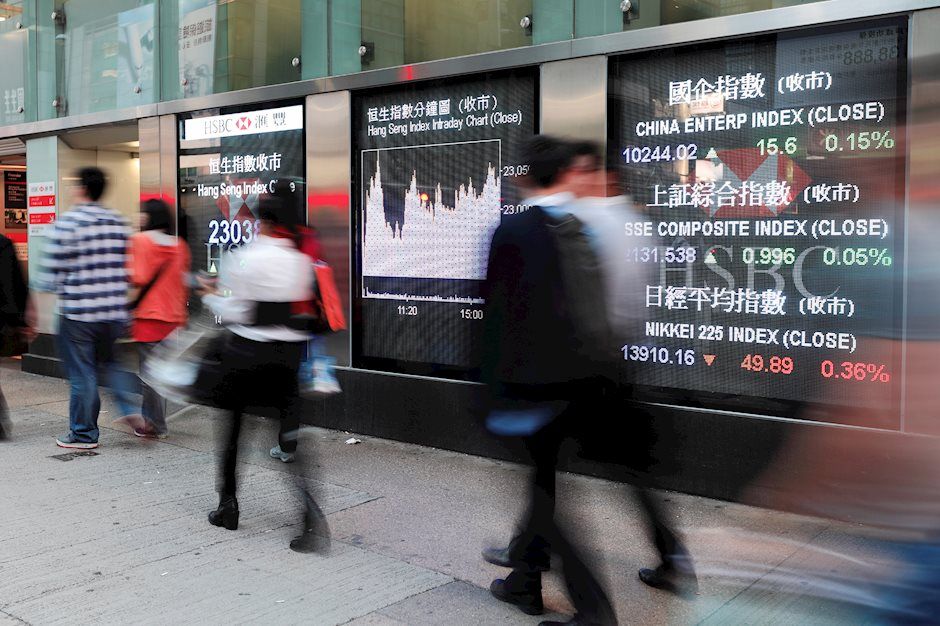The Coronavirus: International Propagation and Tail Risks

The international propagation of the coronavirus forces a rethink of the consequences for the global economy. Coming after the outbreak in China, the marginal impact on the global economy of the spreading of the epidemic should, a priori, be rather limited. Yet, financial markets have reacted very negatively. This jump in risk aversion reflects concern that the economic consequences may have been underestimated thus far as well as increased focus on tail risk. This ‘financial accelerator' phenomenon may in turn contribute to the worsening of the growth outlook.
The international propagation of the coronavirus forces a rethink of the consequences for the global economy. The epidemic, which combines a demand, a supply and an uncertainty shock, has a direct impact on the real economy via a decline in spending and production –due to the shutdown of factories and offices as well as travel restrictions-, which in turn creates international spillover effects: trading partners experience a decline in exports to the virus-hit country and supply chain disruption may cause a drop in production. The global impact depends on the size of the country and its role in global supply chains, hence the concern about the developments in China. These channels of transmission are repeated in every country where the virus spreads but the marginal impact on the global economy of the international propagation of the epidemic should, a priori, be rather limited considering that countries like Italy have a far smaller weight than China and should also generate smaller spillover effects. The regional impact can, however, be more significant. Italy for instance, has a weight of 15% in eurozone GDP.
The sharp drop in equity markets this week following news on the international propagation has occurred against a background of hopeful developments in China in terms of a drop in new cases and the gradual resumption of production, except for Hubei province. This has also meant that Chinese equities had a better performance in recent days compared to Europe or the US. The large drop in risk appetite, which is also manifested in a strengthening of the euro versus the dollar, reflects a growing concern that, due to the international propagation, the hit to global growth may end up being more severe than was hitherto supposed. Using the IMF as a reference point, the epidemic has only led to a small 0.1% downward revision of world growth for this year. On the other hand anecdotal evidence on the impact on individual companies is accumulating. Earnings guidance has been cut or even scrapped altogether, due to lack of visibility. Analysts have revised the earnings outlook downwards. Certain companies have announced cost cutting initiatives to limit the hit to their bottom line. These company-specific developments fuel concern that the overall macro impact may have been underestimated. Tellingly, European economic commissioner Gentiloni has stated it is still too early too fully gauge the impact.
The jump in investor risk aversion could also be due to increased concern about tail risks. As a consequence, low likelihood developments end up having a disproportionate impact on behaviour. This also applies to consumer behaviour. Infection worries may be such that they cause a precautionary drop in demand. Such a ‘safety first' reactioncreates a disconnect between the number of infections and the macro impact. This risk is of particular importance for the travel and hospitality industry, with people refraining from traveling, including business travel, not because they are income-constrained but because of health safety concerns or because international conferences are cancelled for the same reasons. This in turn can generate spillover effects to other sectors1 . Health concerns can also have a supply side impact when staff have to stay at home because they or their children are in quarantine, although it must be said that in many sectors information technology enables working from home and thus should limit this effect somewhat2 . Finally, financial developments may act as an accelerator and contribute to the worsening of the growth outlook. If companies can't produce or ship their output or are confronted with a drop in demand, tensions may arise in terms of working capital requirements. This is increasingly observed in China. A hit to profits may end up causing a ratings downgrade which pushes up funding costs. The latter will also increase when investors are shunning the corporate bond market, causing a significant spread widening, like we have seen this week.
Author

BNP Paribas Team
BNP Paribas
BNP Paribas Economic Research Department is a worldwide function, part of Corporate and Investment Banking, at the service of both the Bank and its customers.

















